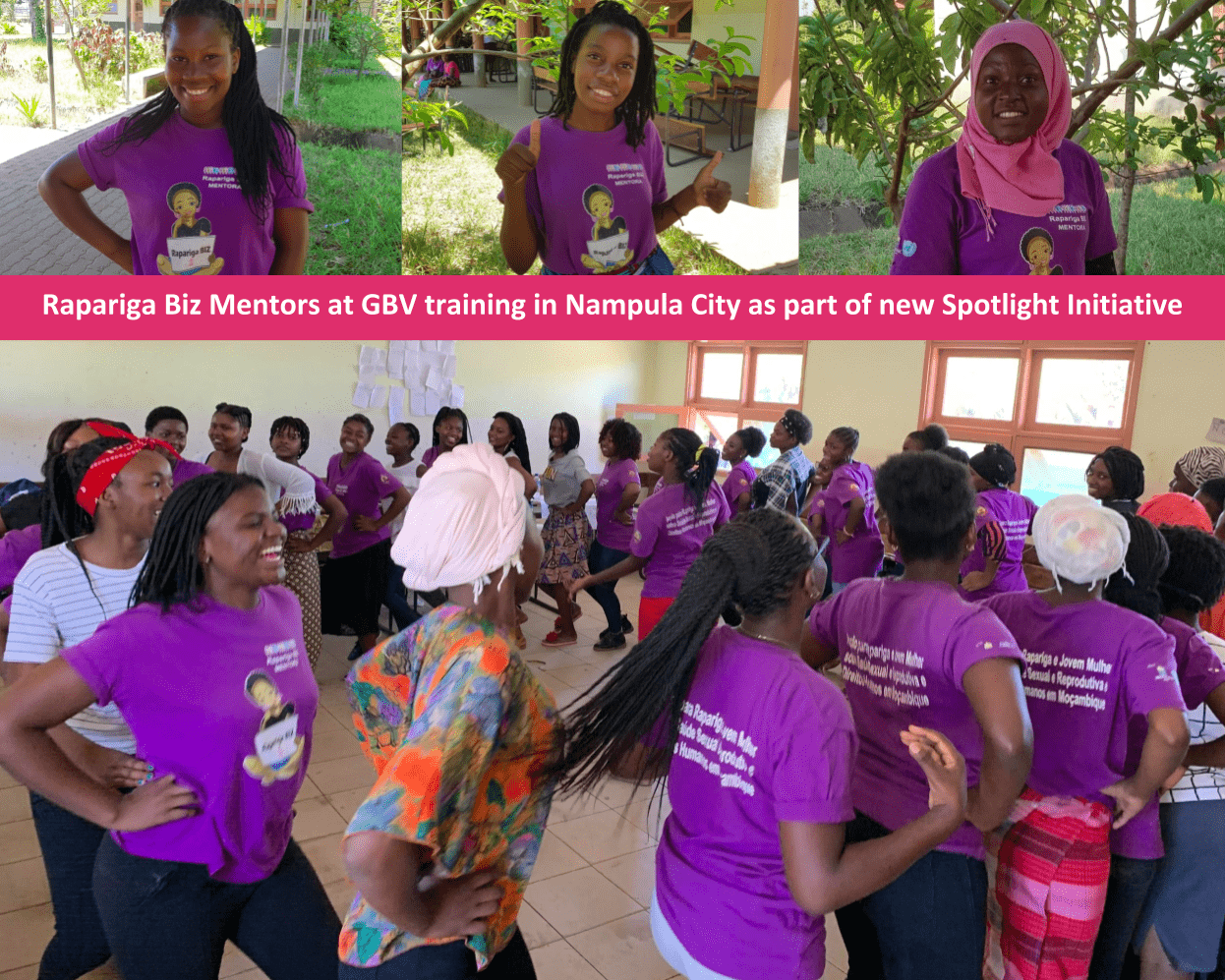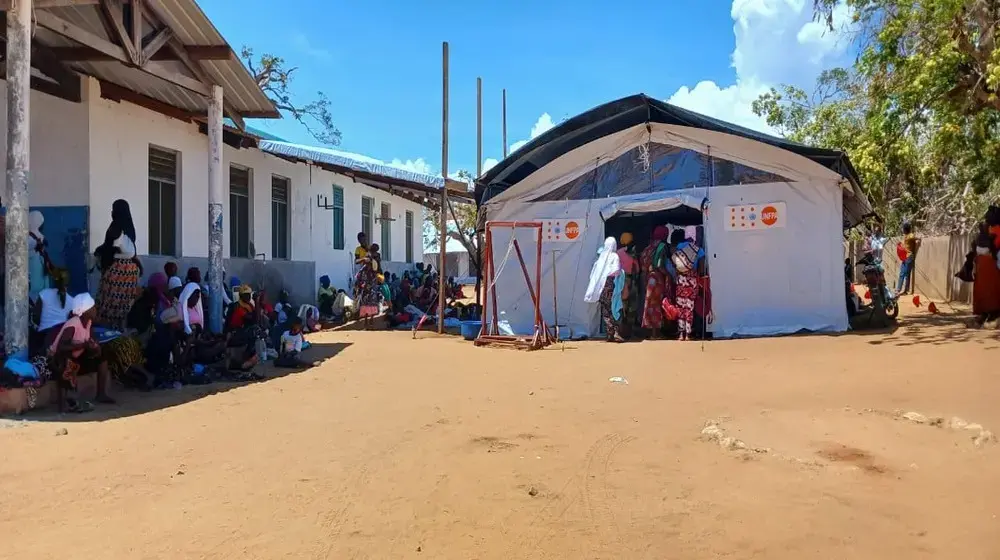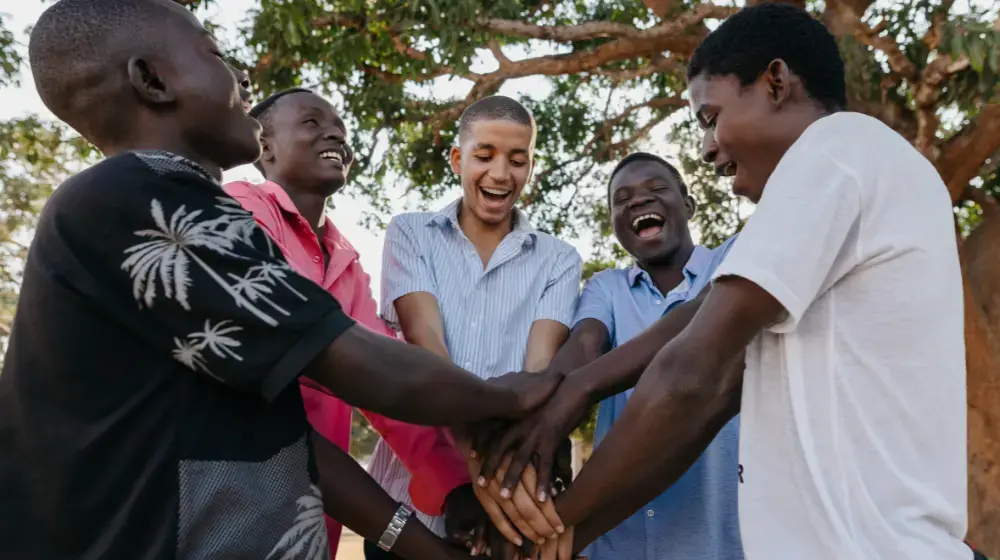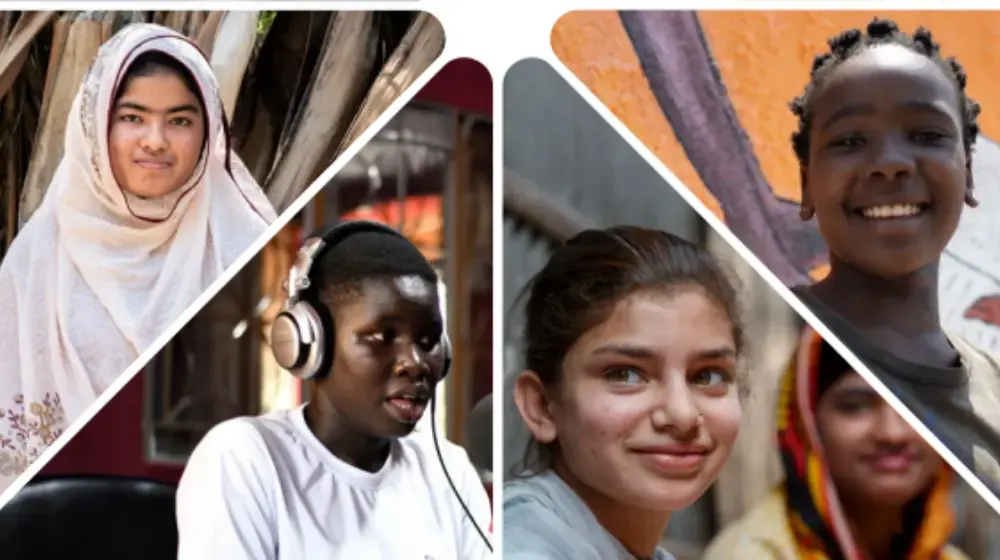Nampula, Mozambique — Metânia (18) is one of more than 1,000 mentors of the Rapariga Biz Joint Program in the province of Nampula who participated in a day-long training about gender-based violence (GBV) this October, as part of the new global Spotlight Initiative to eliminate all forms of violence against women and girls, spearheaded by the European Union and the United Nations. In March of this year, the Government of Mozambique and Civil Society Organizations began implementing the Spotlight Initiative in Mozambique. The Spotlight Initiative is closely coordinated with related programs such as the Rapariga Biz program to ensure synergies. In the province of Nampula, the Spotlight Initiative focuses on four districts where the Rapariga Biz program is already being implemented, and this served as an opportune platform for reinforcing knowledge about gender-based violence among a thousand active mentors.
"This training is very important because we are learning about what kinds of gender-based violence there are in our communities, and I, as a mentor, want my girls to recognize when they suffer from violence, so they can go somewhere where they can be helped, and so they can know that there are people fighting against this kind of violence."
According to the 2011 Demographic Health Survey (DHS) in Mozambique, 34% of interviewed women in the province of Nampula identified themselves as victims of physical violence, and 7.9% as victims of sexual violence. 38.7% of interviewed women victims of physical or sexual violence declared that they didn’t tell anybody about the violence they suffered, nor did they search for any assistance. According to the National Institute of Statistics (INE), Estatisticas de Violencia Domestica 2014-2016, 23.6% of women and 10.4% of men name at least one reason that justifies domestic violence against women.
The Rapariga Biz program, implemented by UNFPA and its UN sister organizations (UNICEF, UN WOMEN, and UNESCO) with funds from the Embassy of Sweden in Maputo, the United
Kingdom ́s Department of International Development (DFID), and the Government of Canada, was launched in August 2016 and targets 1 million vulnerable girls and young women in Zambézia and Nampula provinces with empowerment, sexual and reproductive health and rights (SRHR), leadership, citizenship and human rights with the goal to prevent child marriage and teenage pregnancy.
The backbone of Rapariga Biz is the Safe Space Model approach, which allows adolescent girls and young women to meet regularly in a safe and secure space to discuss and learn about their SRHR and life skills, to express themselves and share experiences. Mentors receive comprehensive training to acquire the knowledge and skills to lead mentorship sessions in their communities. Taking advantage of the natural synergy between the two programs, mentors of the Rapariga Biz program received additional training to reinforce and introduce new knowledge and skills around GBV, deepening understanding of underlying drivers, types, and impacts of GBV, and focusing especially on knowledge and skills to challenge harmful norms, to empower survivors and refer them to institutions that can assist them, and practical steps or measures that can be taken to raise awareness about and empower girls to recognize and protect themselves against different forms of GBV.
"The training was very good, we learned a lot. With the teachings and clarifications they brought us today, building on knowledge that we already had but going deeper, we now have more mastery on this issue, and ultimately the most important part of it was: learning what to do and where we should refer people who suffer from violence, because it is not enough for you to know what violence is [...] if you do not know how to intervene." Eva (18).
"I want to be a mentor for the simple reason that our society needs more people to be aware of all the violations that have happened against women as well as children. There are many people who just witness violence and remain quiet. With this role as a mentor, I have a better chance to speak out about the violence that I see, and I can contribute and sensitize people that things should not be this way."
In line with the Spotlight Initiative's principle of "leaving no one behind," the training also introduced new knowledge about the inclusion of people with disabilities. During the training, mentors were guided in a reflection about disabilities, including myths and realities regarding people with disabilities and social norms, vulnerability to GBV among people with disabilities, lack of access to services, and tips for making mentor sessions more inclusive of girls with disabilities in the Rapariga Biz safe spaces.
"What most moved me today was the realization that when we've gone to talk to people about gender-based violence, we've forgotten about people with disabilities."
One mentor, Rosimina (19), recounted why being a mentor has been so impactful to her life. Raised by a single mother, Rosimina struggled to attend school due to financial difficulties but eventually was able to attend, is working hard to graduate, and has since become a mentor. She never imagined she would one day be able to share her views in public, as she did in conceding this interview for the world to hear. Her work as a mentor has also been rewarding. One of Rosimina's current mentees was shy, did not attend school, and was facing violence in her home. But this girl was able to find Rosimina and begin attending mentoring sessions in a safe space, and is now integrated back into school.
"The messages of today's training were all important and I liked them. The most important takeaway [to me] was: let's put an end to early marriage, early pregnancy, and not allow violence against women and girls."





